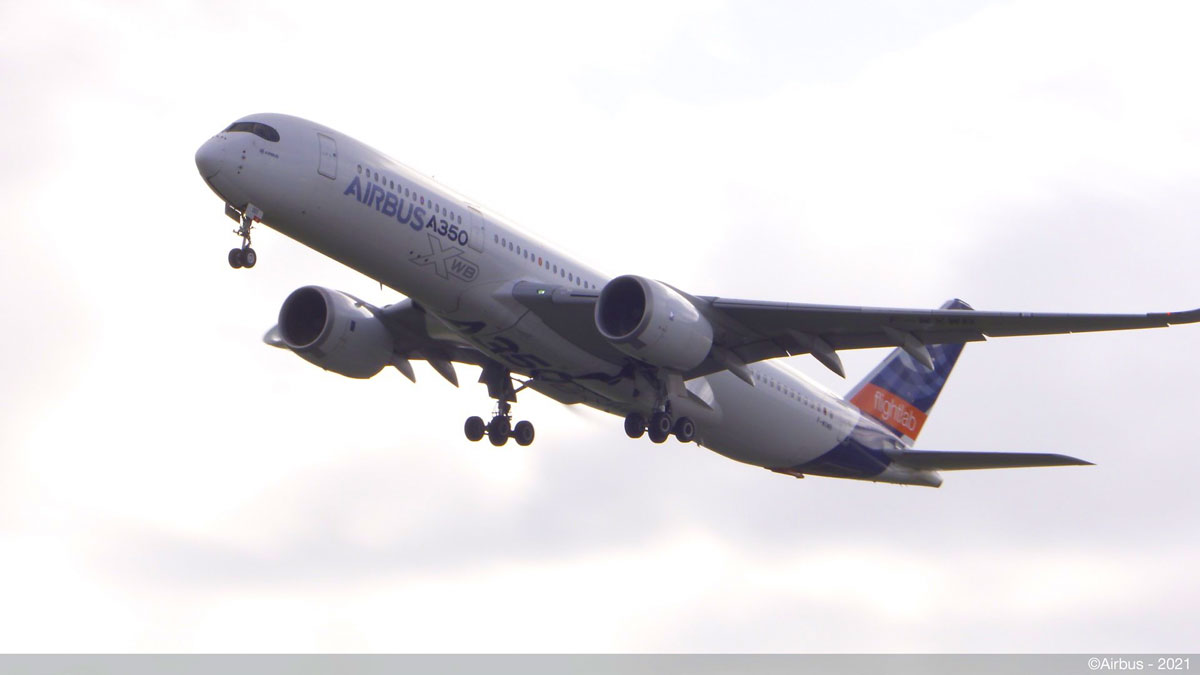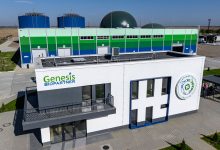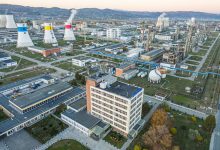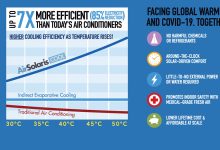The Role of SAF in Reducing Air Transportation GHG Emissions
Use of sustainable aviation fuels (SAF), fuels with lower life cycle GHG emissions intensities than conventional aviation fuels, is one of the principal options currently available for reducing air transportation GHG emissions.
The air transportation industry is responsible for a significant amount of greenhouse gas (GHG) emissions each year. Immediately before the COVID-19 crisis, the industry emitted approximately 3% of annual global GHG emissions – with that footprint projected to grow. It is therefore critical to reduce aviation GHG emissions as a part of efforts to meet global climate goals.
However, the cost of SAF – which can be several times the cost of conventional aviation fuels – has contributed to SAF’s limited use to date. Insetting, or the purchase of GHG emission reductions within an organization’s supply chain, is a tool to spread the cost premium of SAF across the aviation value chain and increase the uptake of SAF.
Smart Freight Centre (SFC) and MIT Center for Transportation & Logistics (CTL), commissioned by Shell Aviation, have developed guidelines for insetting in aviation transportation value chains to facilitate the use of more SAF and help decarbonize the sector.
The guidelines, to be released by early summer of 2021, outline an approach to insetting that is flexible enough to drive the long-term value chain collaboration needed to bring SAF use to scale. At the same time, the guidelines include controls to provide entities along the SAF value chain confidence that emission reduction benefits from SAF are of legitimate origin, of a reasonable vintage, and are properly accounted for according to broadly accepted emission accounting methods.
More specifically, the guidelines provide air carriers, logistics service providers, freight shippers, business travellers, travel management companies, and fuel suppliers the details of an accounting and reporting system for SAF insets.
First long-haul flight fuelled by SAF produced in France
On May 18th, Air France-KLM, Total, Groupe ADP, and Airbus announced they have joined forces to make the first long-haul flight fuelled by Sustainable Aviation Fuel (SAF) produced in France.
This flight is a tangible result of the four groups’ joint ambition to decarbonize air transportation and to develop a SAF supply chain in France, prerequisite for their widespread use in French airports.
No modifications to storage and distribution infrastructure, aircraft or engines are required to incorporate biofuels. Their gradual introduction worldwide should significantly reduce CO2 emissions from air transportation, in line with the United Nations’ Sustainable Development Goals.
The biofuel used for this flight was made from waste and residue sourced from the circular economy. Total produced the SAF from used cooking oil at its La Mède biorefinery (in southern France) and at its Oudalle factory (near Le Havre), without using any virgin plant-based oil.
This first 100% French SAF received ISCC-EU certification from the International Sustainability & Carbon Certification System, an independent organization that guarantees sustainability. The 16% blend on this flight lessened its CO2 emissions by 20 tons.
By developing and supporting France’s first sustainable aviation fuel, Air France-KLM, Total, Groupe ADP and Airbus are leading the way in making France a driving force for innovation, in support of the energy and environmental transition. French legislation today provides for the incorporation of 1% of this type of biofuel on all flights departing from France as of 2022, ahead of the ambition of gradual incorporation (up to 2% by 2025 and 5% by 2030), which will be carried out within the framework of the European Green Deal.
To meet these requirements, Total will also produce SAF at its Grandpuits zero-crude complex near Paris as from 2024.
This flight also illustrates the synergy of the different drivers for shrinking aviation’s environmental footprint, i.e., sustainable aviation fuel, latest-generation aircraft, and electrification of ground operations. The Airbus A350 used for the flight consumes 25% less fuel than its predecessor. What’s more, the aircraft was serviced by the first 100% pure-electric refuelling truck, developed in France with Total expertise, and all of the ground support equipment used by Air France was fully electric powered.
Air France-KLM is a pioneer in testing sustainable aviation fuels. KLM made its first SAF-powered flight in 2009. Since then, the Group has multiplied the number of innovative programs. Between 2014 and 2016, for example, it carried out 78 Air France flights powered by a 10% SAF blend in collaboration with a Total affiliate. These tests showed that the use of SAF had no impact on the reliability of airline operations. Air France-KLM intends to strengthen its leadership in SAF in the years ahead, while contributing to research on future generations of aircraft.
In addition to this flight, Airbus is conducting several series of tests to certify airliners to fly with 100% SAF in the coming decades. Airbus has also installed SAF refuelling stations at its industrial facilities so it can be used in production operations, as well as for aircraft deliveries. These installations contribute to Airbus’s ambition to decarbonize all of its industrial operations.
For this first flight, Benjamin Smith, CEO of Air France-KLM, stated: “For many years, the Air France-KLM Group has been committed to reducing its environmental footprint. Together with the renewal of our fleet, sustainable aviation fuels constitute our main lever in the medium-term for reducing our CO2 emissions per passenger/km by half by 2030. These two actions are therefore central to our strategy, alongside eco-piloting and achieving carbon-neutral ground operations. France currently has the opportunity to position itself as a leader in the production and use of sustainable fuels and we are doing everything possible to contribute to this with our partners. Supporting the emergence of an economically viable French aviation biofuel sector for all the parties involved is a strategic priority for the country and the group.”
“The development of biofuels is part of Total’s broad-energy strategy for decarbonizing the transportation industry. After successfully launching production of sustainable aviation fuels at our facilities in France last March, we are continuing to adapt our industrial facilities to prepare for the growing demand from the aviation industry in the coming decade. By directly reducing the carbon intensity of the energy products used by our aviation industry customers, we are actively working with them to achieve our ambition to get to net zero by 2050, together with society,” Patrick Pouyanné, Chairman and CEO of Total, declared.
“This first flight from Paris-Charles de Gaulle airport is a symbol of our ambition to decarbonise air transport by integrating new sustainable air fuels into aircraft. The European air transport roadmap aims for zero net emissions by 2050, and we are keen, as an airport operator, to support this energy transition and to embark, without delay, on the path of transforming our operation process and infrastructure,” Augustin de Romanet, Chairman and CEO of Groupe ADP, added.
“Sustainable fuels are a major lever for achieving our purposes of decarbonizing the aviation sector, and Airbus supports all initiatives that contribute to their development and use on commercial flights. Coordinated action by all stakeholders is needed to increase the share of these sustainable fuels, which can be used today on up to 50% of our aircraft, without any modification or operational impact, thus reducing their environmental footprint,” And Guillaume Faury, Chairman and CEO of Airbus, mentioned.
First test flight 100% Sustainable Aviation Fuel
The study of sustainable aviation fuel (SAF)’s impact on the full scope of aircraft emissions has been few and far between. An Airbus-led project is looking to change that by conducting a series of flight and ground tests aimed at shedding light on the emissions performance of 100% SAF.
In March this year, an A350 moved into position, revved its jet engines, and took off from the runway at Blagnac airport in Toulouse, France. But this was no ordinary flight: the test aircraft was fuelled by 100% SAF.
Today, all Airbus aircraft are certified to fly with up to a 50% blend of SAF mixed with kerosene. But the emissions performance of SAF when unblended with any type of fossil fuel has remained a question mark across the industry—until now.
The Airbus-led Emission and Climate Impact of Alternative Fuels project, in collaboration with Rolls-Royce, German aerospace research centre DLR and oil refining company Neste, has set its sights on providing insight on that very question.
Throughout the year, the project will test the emissions performance of 100% SAF on one engine of a Trent XWB-powered A350 test aircraft in the air and on the ground. It is the first in-flight study of its kind using a commercial passenger jet.
“SAF is one of the aviation industry’s best low-carbon solutions with an immediate impact on CO2 emissions today,” Steven Le Moing, Airbus New Energy Programme Manager, said. “This research project will help us to better understand the impact of unblended SAF on the full scope of aircraft emissions, while supporting SAF’s future certification for blends that exceed today’s maximum of 50%.”
“The first flight went exceptionally well,” explains Emiliano Requena Esteban, Airbus Flight Test Engineer. “There’s no perceptible difference in engine behaviour between jet fuel and SAF. It’s very exciting for me to contribute to a project that participates in the decarbonisation of our skies!”
Understanding the SAF impact on aircraft emissions
The test flight, conducted on March 16, 2021, is the first in a series of clearance tests scheduled to analyse the safety of 100% SAF. Then, in April, DLR’s Falcon 20E ‘chase’ aircraft equipped with a ‘sniffer’ (i.e., sensors) followed 50 metres behind the A350 test aircraft to measure the emissions directly from the SAF-fuelled engine exhaust.
Over the past decade, SAF has demonstrated its efficacy in reducing CO2 emissions when used as a substitute for conventional or fossil-based jet fuel. However, little research has been carried out on how SAF can have a positive impact on other aircraft emissions. This means the industry can paint only half the picture of aviation’s overall climate impact.
“Decarbonizing aviation is not just about reducing CO2 emissions,” Steven Le Moing explains. “At Airbus, our priority is to deal with the complete climate-impact challenge, which includes overall greenhouse gases and other aircraft emissions. Our decarbonization plan focuses on accelerating technology development to this end, in complement to a dynamic deployment of SAF.”
For this reason, the project will help to better analyse the impact of other climate-relevant emissions from aircraft engines, including: Carbon monoxide (CO); Nitrogen dioxide (NOx); Water vapour; Soot; Aerosol and sulphate aerosol particles; Contrails and contrail cirrus clouds (i.e., clouds of ice crystals produced by aircraft engines at high altitude under certain meteorological conditions).
Unblended SAF of European origin
The 100% SAF is a key component of the research project. The series of flight and ground tests will compare findings from the unblended SAF mixture made from Hydroprocessed Esters and Fatty Acids (HEFA) against those of standard kerosene and low-sulphur kerosene. HEFA feedstock generally consists of globally sourced animal fat and used cooking oil, but locally sourced feedstock from specific regions can also be used. The feedstock supplied to Airbus for the project is of EU origin.
In addition, the 117 tonnes of neat SAF that will be used for the entire test campaign were entirely produced in Europe and supplied by Finland-based Neste. The SAF refining process was carried out at the company’s refinery in Porvoo, Finland. After refining, the SAF was then transported by ship to Rotterdam, where the final processing step, known as fractionation, took place. From Rotterdam, transportation via truck brought the SAF to Toulouse, France in ISO containers.
Initial results from the ground and flight tests are expected later in 2021 and more complete results in 2022. The Emission and Climate Impact of Alternative Fuels project, focused on SAF’s emissions performance, is one of several climate-impact programmes that Airbus is currently leading with its partners in an effort to support significant reductions in aircraft emissions across the aviation industry in the decades to come.







